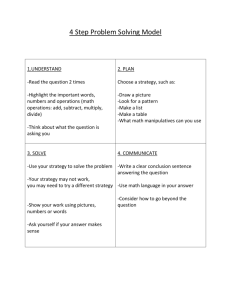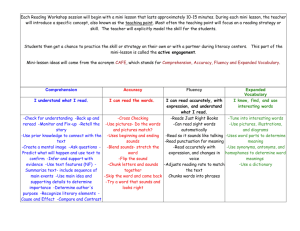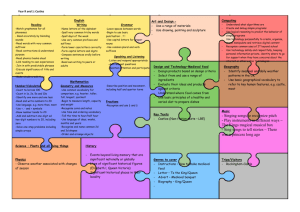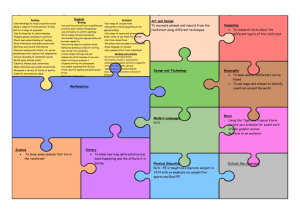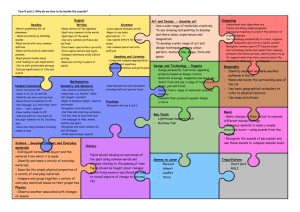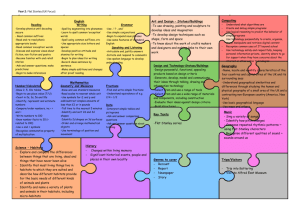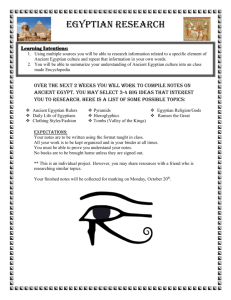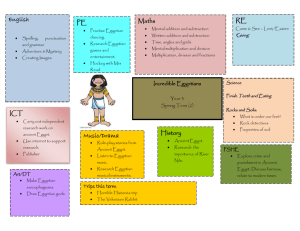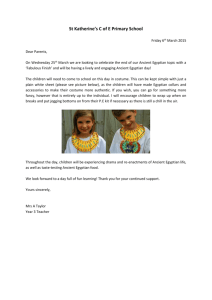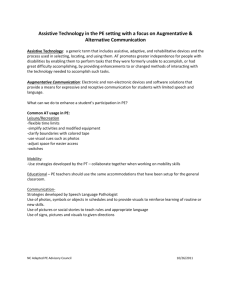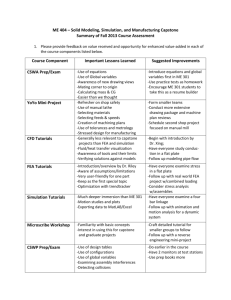Egypt - Loddington School
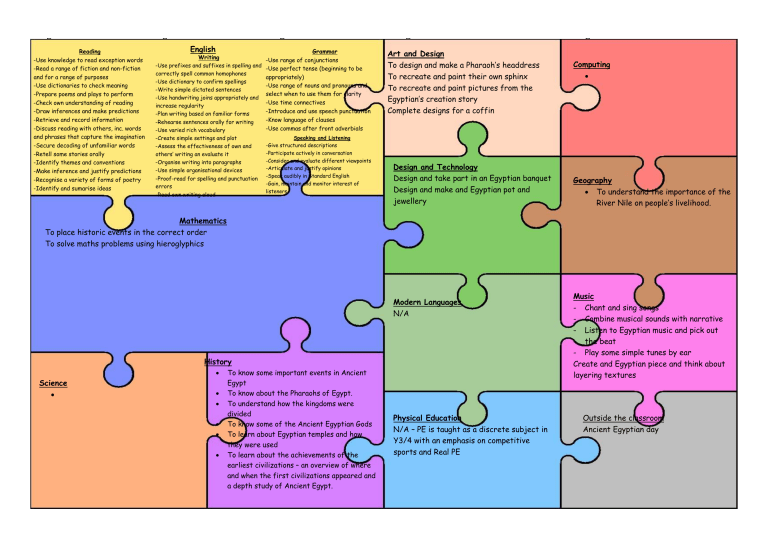
Reading
-Use knowledge to read exception words
-Read a range of fiction and non-fiction and for a range of purposes
-Use dictionaries to check meaning
-Prepare poems and plays to perform
-Check own understanding of reading
-Draw inferences and make predictions
-Retrieve and record information
-Discuss reading with others, inc. words and phrases that capture the imagination
-Secure decoding of unfamiliar words
-Retell some stories orally
-Identify themes and conventions
-Make inference and justify predictions
-Recognise a variety of forms of poetry
-Identify and sumarise ideas
English
Writing
-Use prefixes and suffixes in spelling and correctly spell common homophones
-Use dictionary to confirm spellings
-Write simple dictated sentences
-Use handwriting joins appropriately and increase regularity
-Plan writing based on familiar forms
-Rehearse sentences orally for writing
-Use varied rich vocabulary
-Create simple settings and plot
-Assess the effectiveness of own and others’ writing an evaluate it
-Organise writing into paragraphs
-Use simple organisational devices
-Proof-read for spelling and punctuation errors
-Read own writing aloud
Grammar
-Use range of conjunctions
-Use perfect tense (beginning to be appropriately)
-Use range of nouns and pronouns and select when to use them for clarity
-Use time connectives
-Introduce and use speech punctuation
-Know language of clauses
-Use commas after front adverbials
Speaking and Listening
-Give structured descriptions
-Participate actively in conversation
-Consider and evaluate different viewpoints
-Articulate and justify opinions
-Speak audibly in Standard English
-Gain, maintain and monitor interest of listeners
Mathematics
To place historic events in the correct order
To solve maths problems using hieroglyphics
Art and Design
To design and make a Pharaoh’s headdress
To recreate and paint their own sphinx
To recreate and paint pictures from the
Egyptian’s creation story
Complete designs for a coffin
Design and Technology
Design and take part in an Egyptian banquet
Design and make and Egyptian pot and jewellery
Computing
Geography
To understand the importance of the
River Nile on people’s livelihood.
Science
Modern Languages
N/A
History
To know some important events in Ancient
Egypt
To know about the Pharaohs of Egypt.
To understand how the kingdoms were divided
To know some of the Ancient Egyptian Gods
To learn about Egyptian temples and how they were used
To learn about the achievements of the earliest civilizations – an overview of where and when the first civilizations appeared and a depth study of Ancient Egypt.
Physical Education
N/A – PE is taught as a discrete subject in
Y3/4 with an emphasis on competitive sports and Real PE
Music
Chant and sing songs
Combine musical sounds with narrative
Listen to Egyptian music and pick out the beat
Play some simple tunes by ear
Create and Egyptian piece and think about layering textures
Outside the classroom
Ancient Egyptian day
